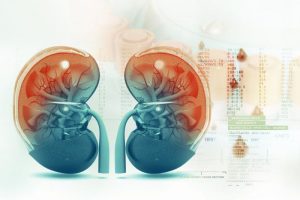Nightlife – RCT of the effectiveness of nocturnal in-centre haemodialysis
A randomised controlled trial assessing the effectiveness and cost effectiveness of thrice weekly, extended, in-centre nocturnal haemodialysis versus standard care using a mixed methods approach.
Chief Investigator
Professor James Burton, University of Leicester
Project Partners
University of Leicester (sponsor)
University of Leicester Clinical Trials Unit (central co-ordinating centre)
Sheffield Teaching Hospitals NHS Foundation Trust
University of Sheffield
University of Bristol
University of Edinburgh
Maddy Warren, Kidney Patient Advocate
University of Glasgow
Manchester University Hospitals NHS Foundation Trust
NIHR Devices for Dignity HRC
Health and Care Requirement
Kidney dialysis is a lifesaving treatment for patients with kidney failure with around 24,000 patients receiving regular haemodialysis at a hospital or in a satellite clinic in the UK. Despite the benefits of receiving treatment, people with kidney failure who are on dialysis suffer from lots of intrusive symptoms and ultimately their lives are shortened because of this devastating disease. Most patients have a set dialysis appointment time lasting for 4 hours, 3 times per week, with travel time in addition. This is mainly because it is convenient for the hospital and not the patient. Studies have shown that being treated with the dialysis machine for longer has benefits, but the hard fact is that medical teams struggle to schedule more flexible or extended dialysis schedules due to the volume of patients and finite numbers of machines and staff. Nocturnal in-centre haemodialysis offers patients something different; the opportunity to have their treatment overnight in a hospital or satellite dialysis clinic while they sleep. Studies suggest that people who have their dialysis overnight may live longer, feel better and may be able to live a life which is closer to normal. Because overnight dialysis (typically 6-8 hours) is a lengthier treatment, it rids the blood of more waste and excess water, acting more like a patients’ normal kidneys which would be working 24/7. As it is gentler, in particular removing fluid more slowly, it also helps heart function. Importantly, it frees the person up during the day to socialise, work and care for others.
The Project Concept
What we know about doing dialysis for longer isn’t perfect. People who choose to do more dialysis may feel better and live longer for other, completely unrelated reasons. The only way to know for sure is to compare longer treatment times with conventional treatment schedules in a well-designed clinical trial. Previous trials haven’t always measured what matters to people with kidney failure which has made it difficult to assess the impact of a particular treatment on real lives. To make sure these mistakes are not repeated, the current trial has been designed with the help of dialysis patients and medical teams from centres that are already offering overnight dialysis and also from those that don’t. This trial asks the question whether six-months of overnight dialysis, performed three times a week in a hospital or satellite centre, improves the quality of life of patients with kidney failure, as compared to those who have shorter dialysis sessions during the day. People who are suitable and consent to take part (and who require dialysis for kidney failure) will be allocated at random to either nocturnal dialysis or daytime dialysis. Quality of life will be measured after 6-months of treatment using questionnaires that have been specifically designed for kidney patients. We will also collect information on the extra costs of night-time dialysis, to see whether the new treatment is more cost-effective than conventional dialysis care. Finally, we will evaluate the experiences of patients who are enrolled in the trial to identify barriers to how the treatment would be rolled out across the NHS, if we were to find that it does benefit patients.
D4D are providing:
- D4D’s Kidney Care Theme Lead Professor Sandip Mitra is a co-applicant for this study
- Dissemination




